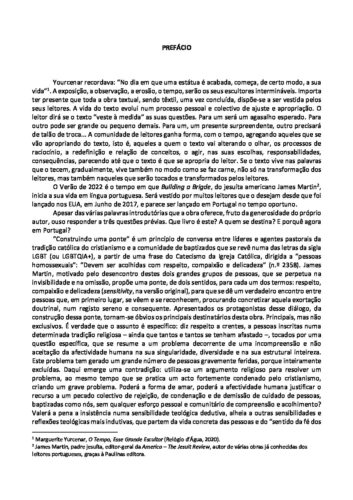Growing up in a Catholic household in South Africa, my faith was the steady ground beneath my feet. I was raised to believe in the loving embrace of God, guided by the teachings of the church. As a young girl, I immersed myself in the community, teaching confirmation classes and leading youth groups, even representing my parish at World Youth Day in Germany in 2005. Through this active faith life, I found a sense of purpose and belonging.
Yet, beneath the surface of my devotion laid a struggle I could not easily name: I had fallen in love with a woman. The realization of my love for her shook the very foundations of my belief, leading me to confront unimaginable questions about my identity and place within the church. Torn between the love I felt and the teachings of the faith I cherished, I grappled with intense feelings of shame and isolation.
In those darkest moments, I teetered on the edge of despair. I considered the convent as an escape, hoping it would lead me away from what I perceived to be a sin. I even attempted to take my own life. It was a cry for help born from the fear of not fitting into a narrative of what was “meant to be.” Eventually, after much prayer and meditation, I gave in to what I felt was real, and allowed myself to have a relationship with a woman.
Torn between the love I felt and the teachings of the faith I cherished, I grappled with intense feelings of shame and isolation.
My family struggled with my relationship, which resulted in a lot of conflict. At one point, one of my siblings even told me that I was responsible for my father’s ill health. It wasn’t until the loss of my uncle—who, after years suffering in silence, had succumbed to his loneliness and died by suicide—that my family began to recognize the importance of love and acceptance of different kinds of love. My uncle’s tragic decision forced the rest of my family to reflect on their own beliefs and how they perceived love, ultimately leading them to embrace my relationship with my partner.
For many years, I felt accepted by my home parish, a place where I could express my true self without fear of condemnation. However, life’s changes brought me to a different suburb and a new parish community. Initially, my partner, who later became my wife, and I felt welcomed and embraced by fellow parishioners, until an unexpected moment shattered that illusion.
Volunteering to lead a Catholic Life in the Spirit seminar, I was met with a letter from the parish priest declaring that those not living in a “state of grace” should refrain from leadership roles. The letter felt personal, aimed directly at me, as it outlined examples of “grave sin,” with implications that left no doubt about the specific target. I was devastated. The very community where I could have offered guidance and mentorship to young LGBTQ+ individuals felt hostile and dismissive.
Who are we to stand in the way of someone who loves God and seeks to come to Him?
Hurt and frustrated by this experience, I left that parish in search of a community that could affirm my identity and serve as a refuge. I found another place to worship, one that wasn’t as charismatic but felt more genuine. Over time, however, that anger toward my church lingered, as I watched people fearfully cling to outdated beliefs.
A few years passed, and fate led me back to that same parish. While attending Mass, the opportunity for confession unexpectedly arose. Seeking solace, I entered the confessional, hoping to unburden myself of the anger I had carried. I relayed my experiences to the priest. His response surprised me: “Those ladies think they are more Catholic than the Pope!” Despite his brashness, his words resonated deep within me. He affirmed that Jesus’ teachings revolve around love, emphasizing that the focus should be on loving God and loving our neighbors rather than drawing lines to exclude anyone.
His perspective was refreshing—a reminder that the essence of our faith lies in love, not condemnation. “Who are we to stand in the way of someone who loves God and seeks to come to Him?” he asked, his sincerity piercing my resentment. This moment ignited a flicker of hope in my heart, which had often felt abandoned.
Ultimately, my journey is a testament to resilience and the transformative power of love.
As I continue to navigate my place within the church, the journey remains challenging, but it is also rich with possibility. I have chosen to embrace my identity as a gay woman and embrace my faith, recognizing that both shape who I am. I refuse to allow the hurt inflicted by others to diminish the love and faith I hold dear.
Through my experiences, I am motivated to create spaces of acceptance and understanding, where young LGBTQ individuals can see that their love and their faith are not mutually exclusive. I seek to embody the love that Jesus preached—a love that welcomes, nurtures and uplifts, embracing the complexity of our human experiences.
Ultimately, my journey is a testament to resilience and the transformative power of love. I understand now that I am not alone; in my struggles, countless others share the burden of quiet suffering and longing for acceptance. Together, we can cultivate a faith, rooted in love, that embraces all of God’s children, regardless of their sexual orientation. And through this embrace, I truly believe we can find the heart of the church, a Kingdom where everyone is welcomed to grow in their relationship with God and one another.




